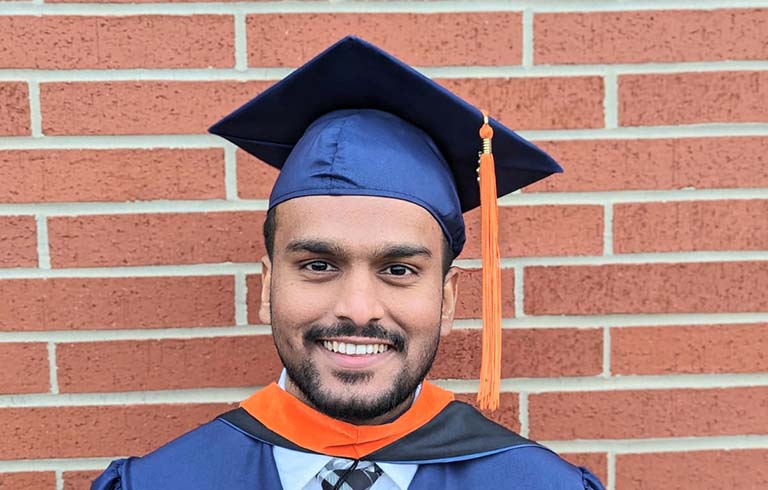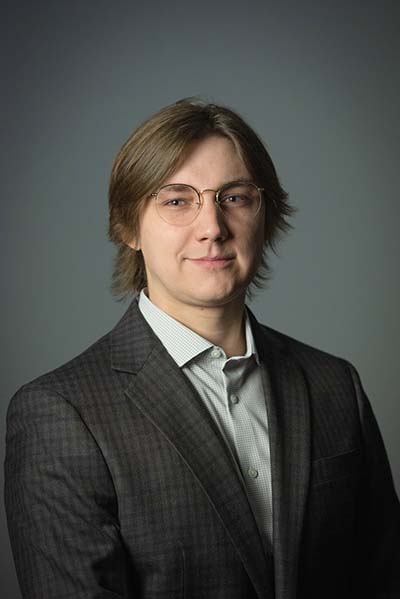
The skills and knowledge to succeed
Abdul Musaddiq Syed’s Trine University degree and the skills it provided propelled him to an extremely successful career.
November 15, 2023
 Danin Fluke’s Trine University education has allowed his interest in computers to
grow into projects that now soar into outer space.
Danin Fluke’s Trine University education has allowed his interest in computers to
grow into projects that now soar into outer space.
Fluke’s high school guidance counselor recommended engineering, and he’s always liked video games and had experience working in a local IT shop.
“I began my studies as an electrical engineering student, but eventually moved to computer engineering as embedded systems and the inner workings of digital signals/logic interested me,” the 2017 graduate said.
Financial aid was the key reason he attended Trine.
“I received a large scholarship, and the university was close to my home, allowing me to commute and even further benefit financially later in my college career,” he said.
Fluke also considered other top engineering schools like Rose-Hulman and Purdue, but ultimately chose Trine as it had the same ABET accreditations and was the best financial decision for him.
An opportunity to work at L3Harris, a technology company and defense contractor, came during his sophomore year.
“I met a recruiter for Exelis Inc. at a job fair at the university,” he said. “I accepted an internship in 2015 for Exelis Inc. as a member of the Custom Software Engineering Department, and continued on with the company for subsequent internships, and an eventual full-time position following graduation. Exelis Inc. would merge with Harris Corporation, and later L3 Technologies, to eventually be known as L3Harris Technologies.”
Today he works for L3Harris in embedded systems, which are small computers with a specific function inside of larger devices. He develops primarily in C & C++.
“I work on the 'Payload Flight Software', which is often an embedded system running on a space grade Single Board Computer, utilizing the Windriver VxWorks RTOS and tool suite,” he said. “These systems are responsible for data collection, transmission to communications networks, bus interactions, and command handling. They do a wide variety of things.”
“I also act as a technical leader for development of simulated components that allow for test and development of critical components early in the project lifecycle,” he said.
Fluke said he really enjoys designing technology.
“Technical excellence is required when working on space-based systems. The work quality required, and the incredible systems I get to design and implement make work fulfilling,” he said.
Fluke wants to become a systems engineer.
“Systems Engineering is a multidisciplinary field which focuses on designing, integrating, and managing systems over the life of the product. Software itself is a subcompact of larger systems,” Fluke said. “In my field of work, a system engineer helps plan the instrument, derive requirements, is customer facing and helps ensure mission success. Software is a component of the larger system.”
“I hope to take my knowledge of the complex 'brain' of these space-based payloads and have a wider impact,” he said.